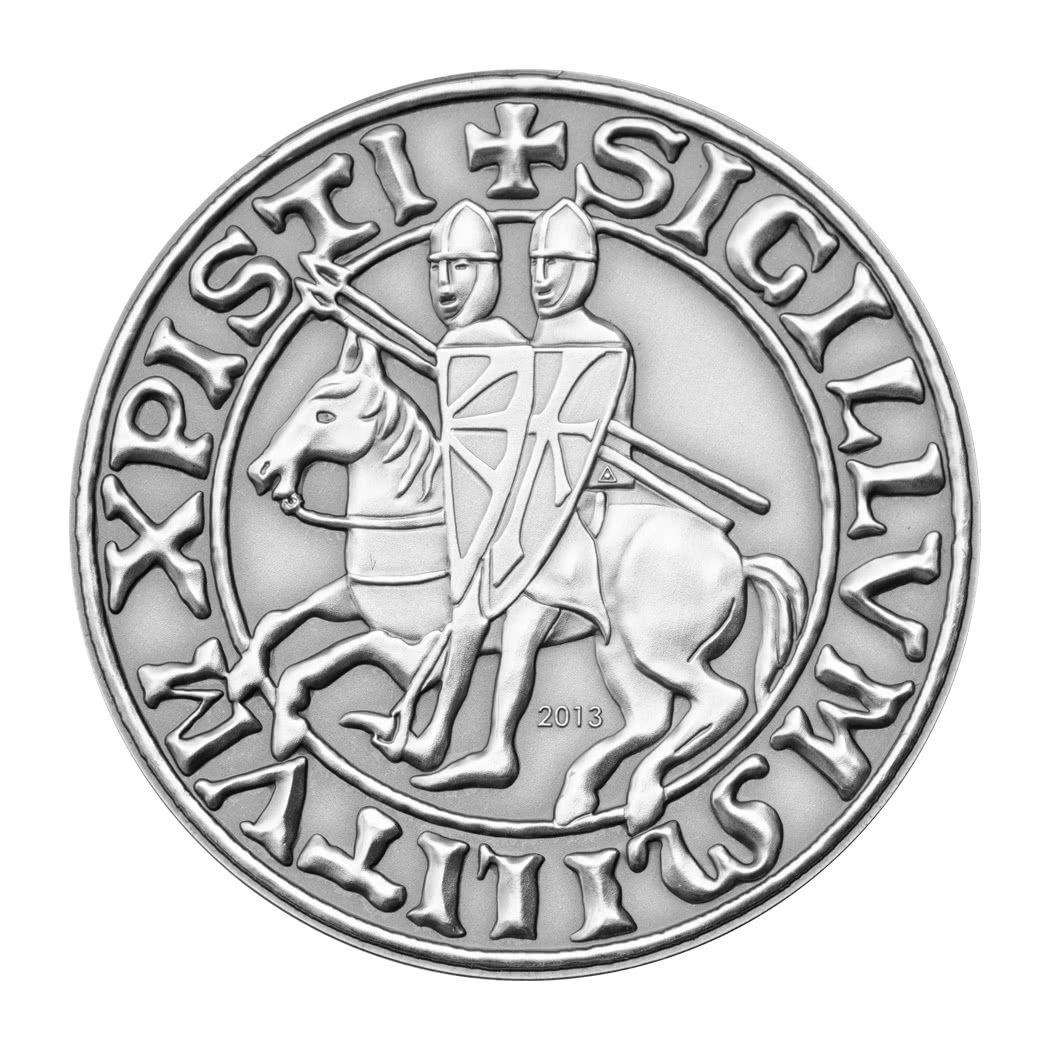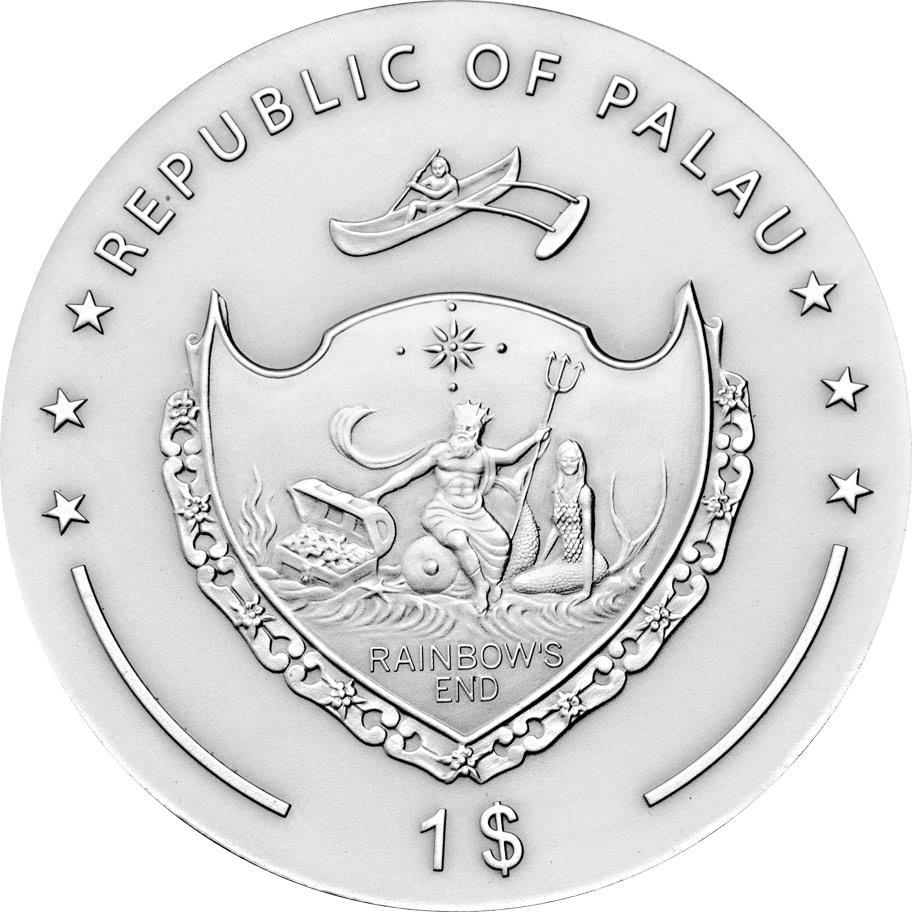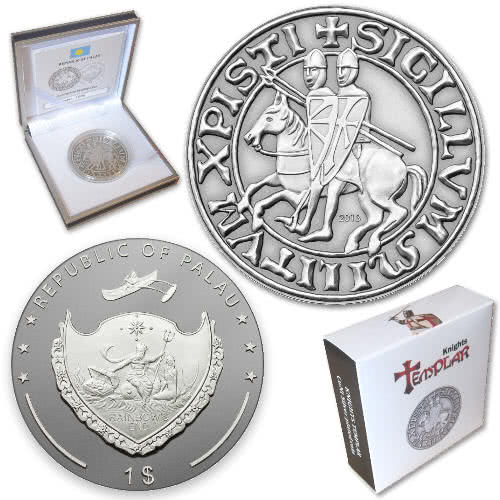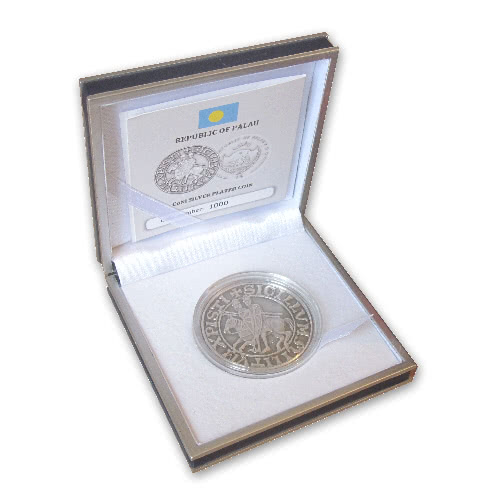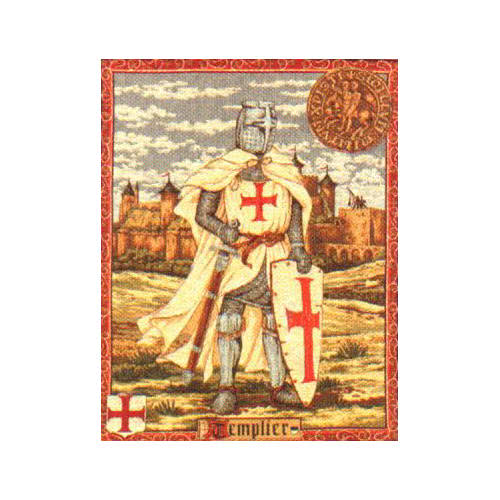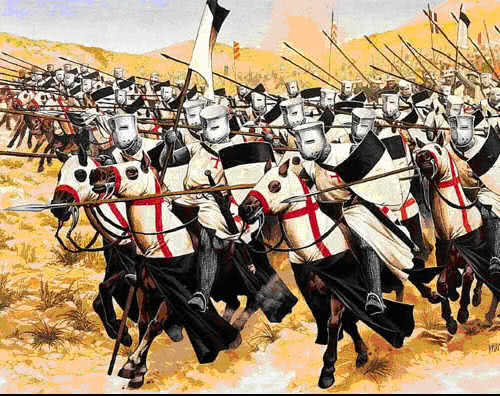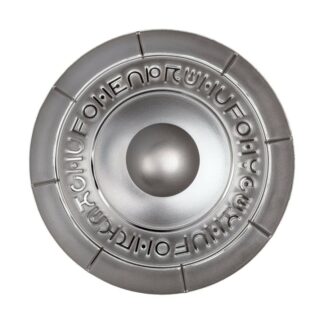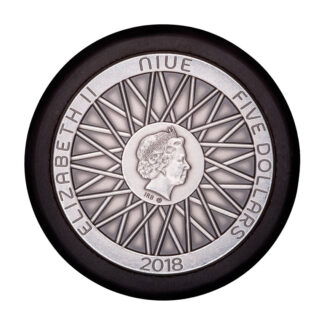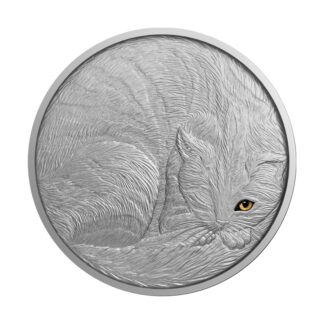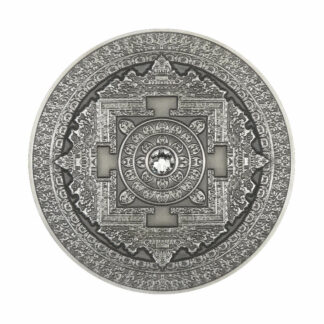Description
KNIGHTS TEMPLAR
The Poor Fellow-Soldiers of Christ and of the Temple of Solomon (Latin: Pauperes commilitones Christi Templique Salomonici), commonly known as the Knights Templar, the Order of the Temple (French: Ordre du Temple or Templiers) or simply as Templars, were among the most famous of the Western Christian military orders. The organisation existed for nearly two centuries during the Middle Ages.
Officially endorsed by the Catholic Church around 1129, the Order became a favoured charity throughout Christendom and grew rapidly in membership and power. Templar knights, in their distinctive white mantles with a red cross, were among the most skilled fighting units of the Crusades.[5] Non-combatant members of the Order managed a large economic infrastructure throughout Christendom, innovating financial techniques that were an early form of banking, and building fortifications across Europe and the Holy Land.
The Templars’ existence was tied closely to the Crusades; when the Holy Land was lost, support for the Order faded. Rumours about the Templars’ secret initiation ceremony created mistrust and King Philip IV of France, deeply in debt to the Order, took advantage of the situation. In 1307, many of the Order’s members in France were arrested, tortured into giving false confessions, and then burned at the stake. Under pressure from King Philip, Pope Clement V disbanded the Order in 1312. The abrupt disappearance of a major part of the European infrastructure gave rise to speculation and legends, which have kept the “Templar” name alive into the modern day.
TEMPLAR SEAL
The Templar Seal showing two knights (perhaps Hugues de Payens and Godfrey de Saint-Omer) on one horse. There are many interpretations of the symbolism of this seal. Contemporary legend held that the symbol represented the initial poverty of the order; that they could afford only a single horse for every two men. This “Seal of the Army (Soldiers) of Christ” (Sigillum Militum Xpisti) is one of the most famous seals of the Order of the Temple and belonged to the 19th Grand Master, Renaud de Vichiers: it represents two knights on one horse, with a spear pointing forwards and the horse galloping from dexter (right) to sinister (left). The knights are messengers of the Temple, heralding the Light from the East.
THE LEGEND
Regarding the text of the seal differences can be clearly seen between the seals of the Grand Masters:
SIGILLUM MILITUM XPISTI. Although the phrase is written using the Latin alphabet, the first two letters of Christ’s name are the Greek XP (Chi Rho) rather than the Latin CHR. The XP symbol’s origin lies in the early roots of Christianity, but came into popular use after the Emperor Constantine had a vision of it and, according to legend, converted to Christianity in the early 4th century. From the time of Constantine, it became one of the most significant symbols of Christianity, surpassed only by the cross itself. Its early associations with the military make it the more apt of the two symbols for the Templars.
WHAT IS A SEAL?
This word comes from the Latin term sigillum, diminutive of signum (sign, print). It is a small instrumentwith a carved side (figures and/or letters) to make a mark by the pressure on a warm sealing wax. By thisway the document was authenticated and rendered strictly confidential. The seal was invented and used along time before the Medieval period, hut it was widely used during that time, both to substitute the inkcross and close confidential documents. All official and high governing authorities, or officials in charge ofall recognized organizations used them. In that period, the sealing wax was made with real wax mixed witha smaller part of white pitch and a pinch of verdigris. When the compound was mixed well, a specific colorwas added to identify the type of the sealed document.

